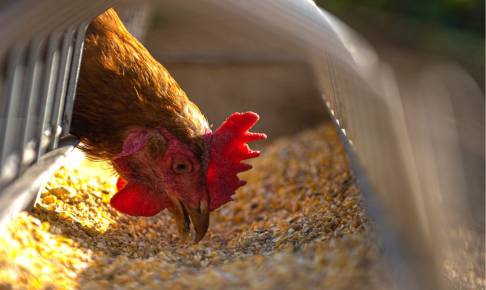German test finds alternariol in ketchup well above EU guideline value
The German consumer magazine Öko-Test has recently carried out some lab analysis on different brands of tomato ketchup and found worrying results in one of the most well-known brands, with alternariol well above the guideline values recommended by the EU.
Alternariol (AOH) is a mycotoxin produced by fungi of the genus Alternaria. AOH can get into products when overripe or even moldy tomatoes are processed. According to the scientific literature, there is some evidence that AOH can have genotoxic effects.
To carry out its investigation, Öko-Test bought 20 different tomato ketchups, including seven products with an organic seal, and gave them to specialized laboratories to test for residues of pesticides and a number of mold toxins, including AOH and tenuazonic acid (TeA).
To evaluate the quality of the products, other parameters were also considered, such as sugar content, lycopene and ergosterol presence (the latter is a substance that is harmless to health itself, but it is an indicator of mold presence).
Of the 20 products tested, Öko-Test recommends fewer than half. Only nine products were rated “very good” or “good”. The test winners were two organic ketchups. Two other products were rated "satisfactory", seven "sufficient", one "poor" - and one "insufficient", the most well-known: Heinz ketchup.
The poorer ratings were mostly due to the high sugar content, however, according to the magazine, that alone did not lead to the bad rating. Rather, the commissioned laboratory found a comparatively high amount of AOH in Heinz ketchup, namely 47 micrograms per kilogram.
Öko-Test highlights that, in 2022, as part of a recommendation for monitoring Alternaria toxins, the EU published a guideline value of 10 micrograms per kilogram (µg/kg) of alternariol in processed tomato products (Recommendation (EU) 2022/553). Member States have to determine the factors leading to the exceedances of the guideline values with the "active participation of food business operators".
With 47 µg/kg AOH measured, Heinz Tomato Ketchup reaches a multiple of the guideline value. According to Öko-Test, this is by no means commonplace, as its inquiry into food monitoring revealed that, in 2019, the Chemical and Veterinary Investigation Office (CVUA) Sigmaringen (technical authority responsible for official food inspection activities in Germany) examined 65 samples of tomato ketchup for Alternaria toxins and found 10.8 micrograms per kilogram as the highest AOH content.
During the analysis for Öko-Test, the laboratories found Alternaria toxins in five other ketchups, albeit on a completely different scale.
The mold toxin tenuazonic acid (TeA) was found three times. In animal studies, TeA inhibited the formation of endogenous proteins, which can potentially lead to organ damage.
The German magazine naturally contacted Heinz, making the results of the analyzes available, but the company has not replied or released any official statement yet.
Source:






















